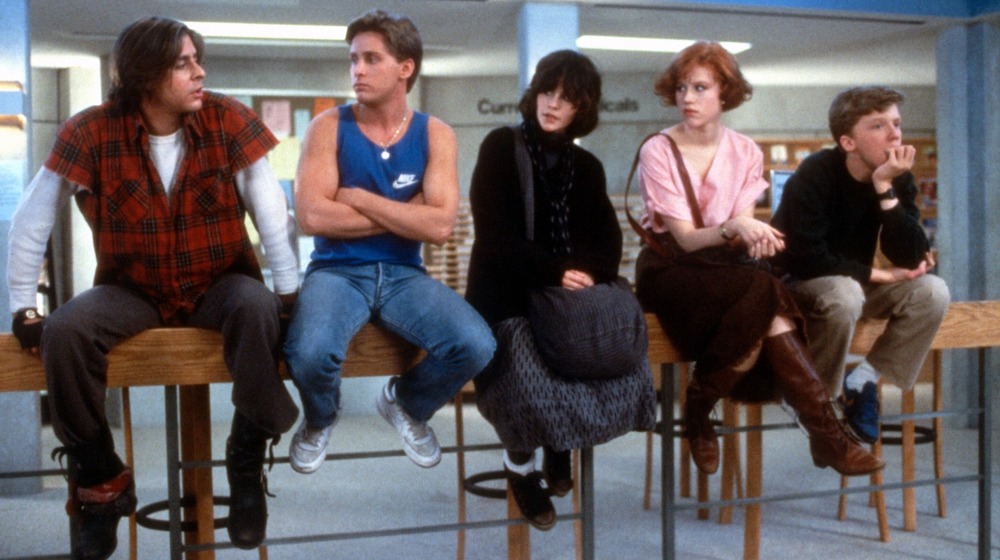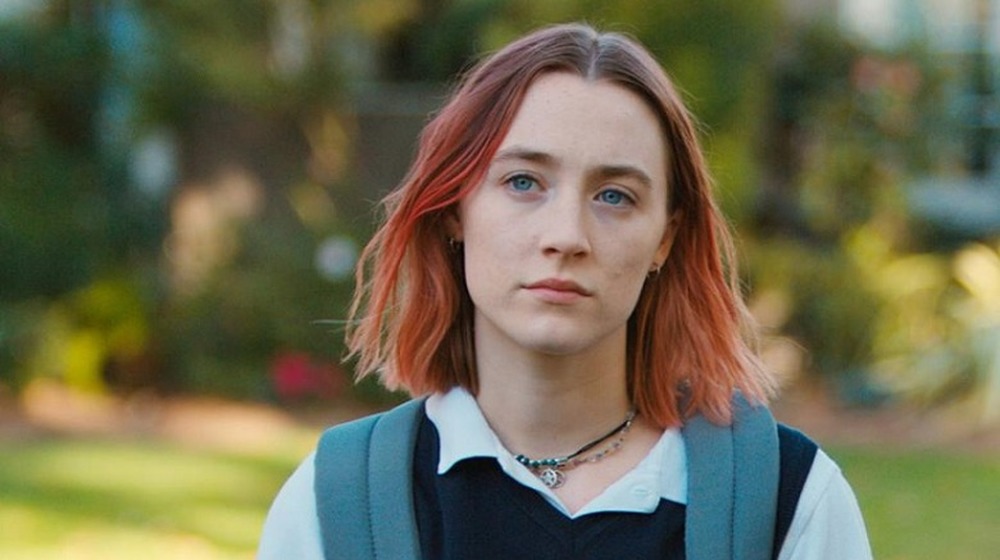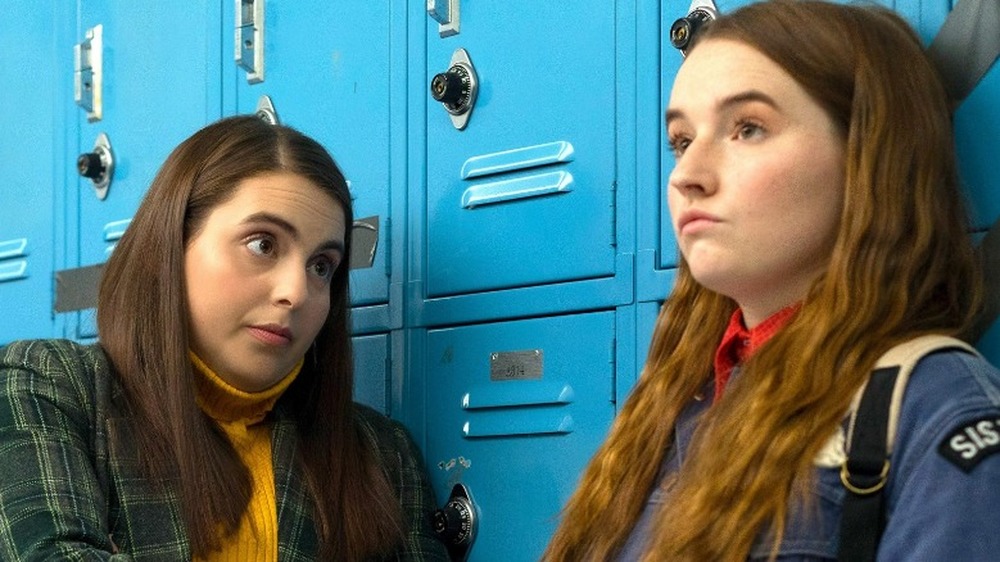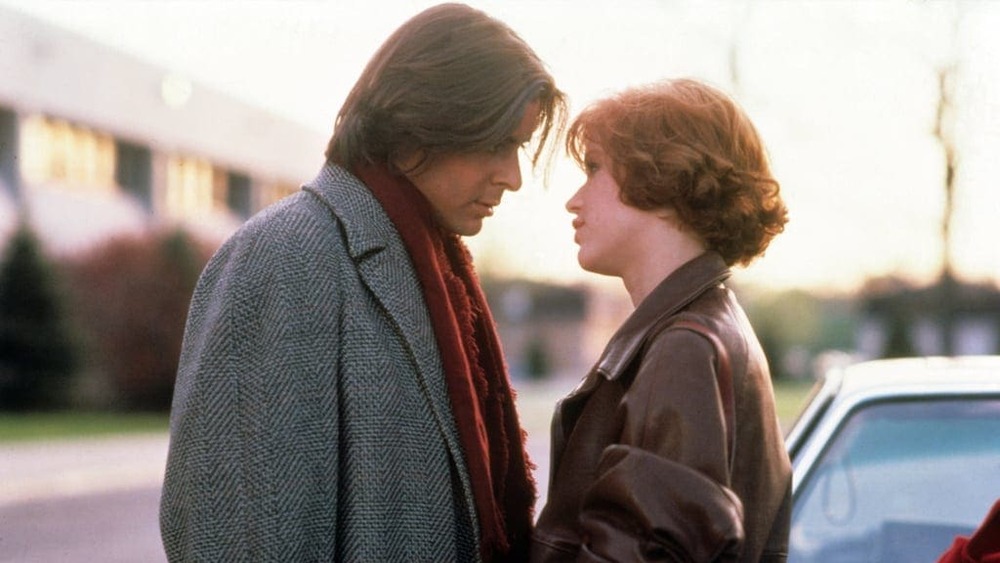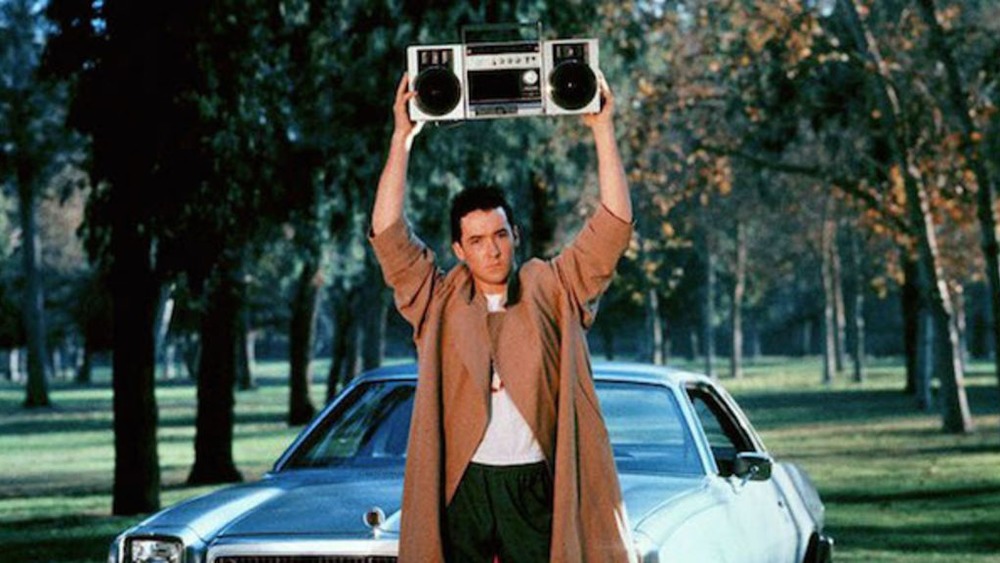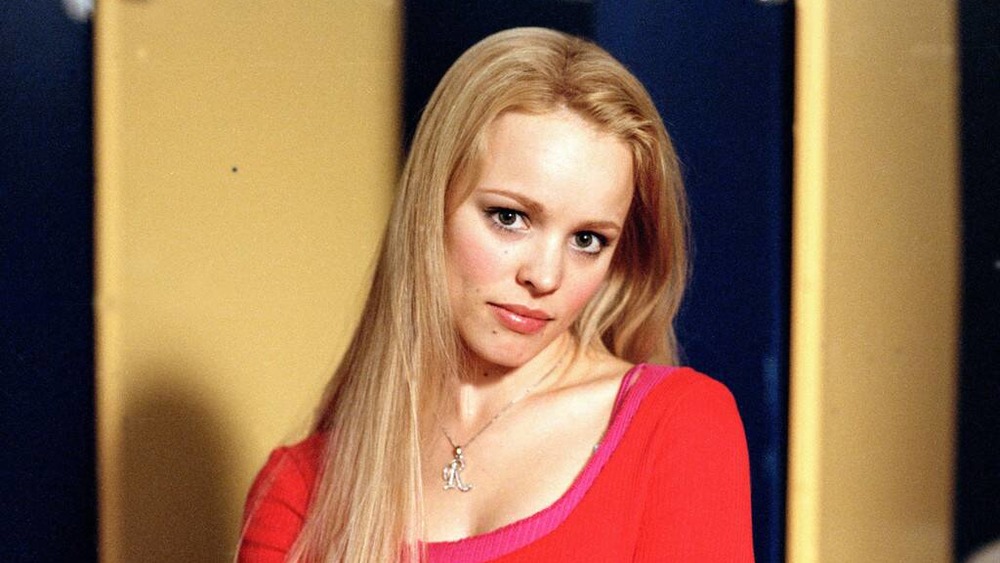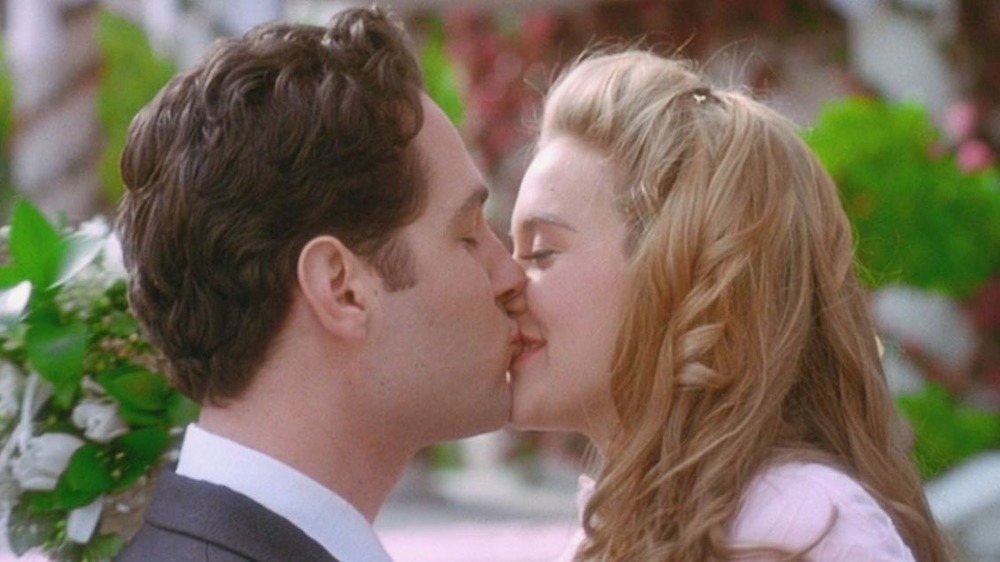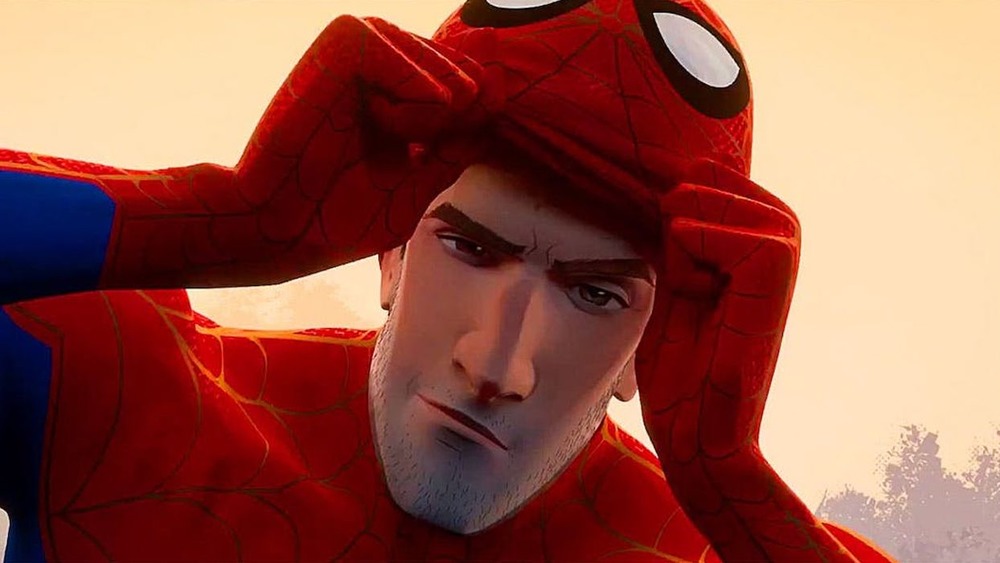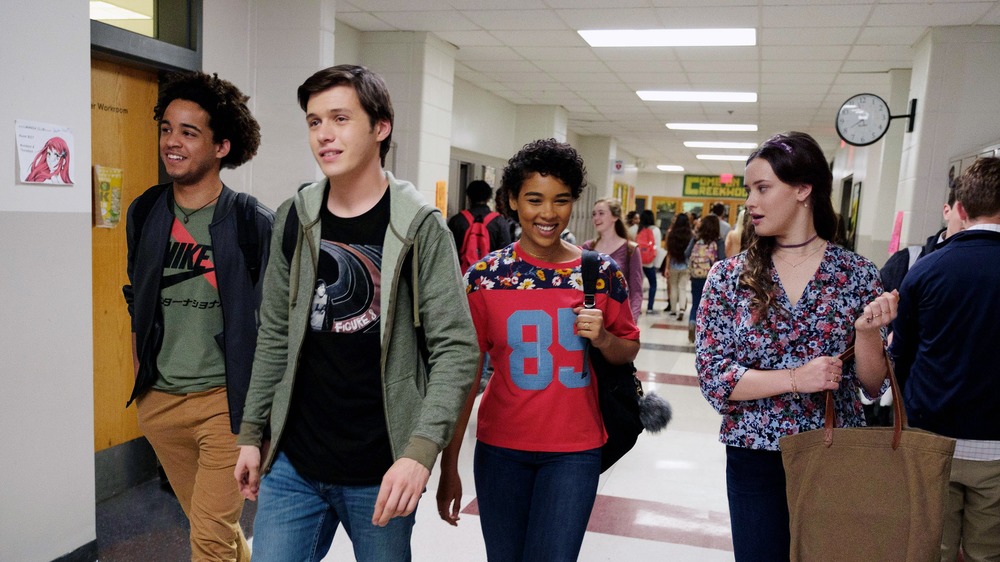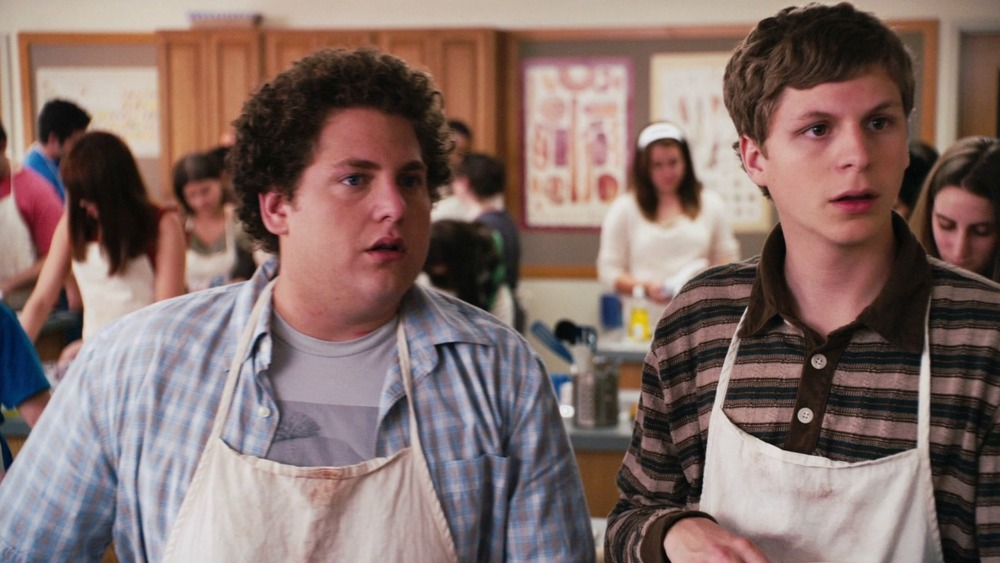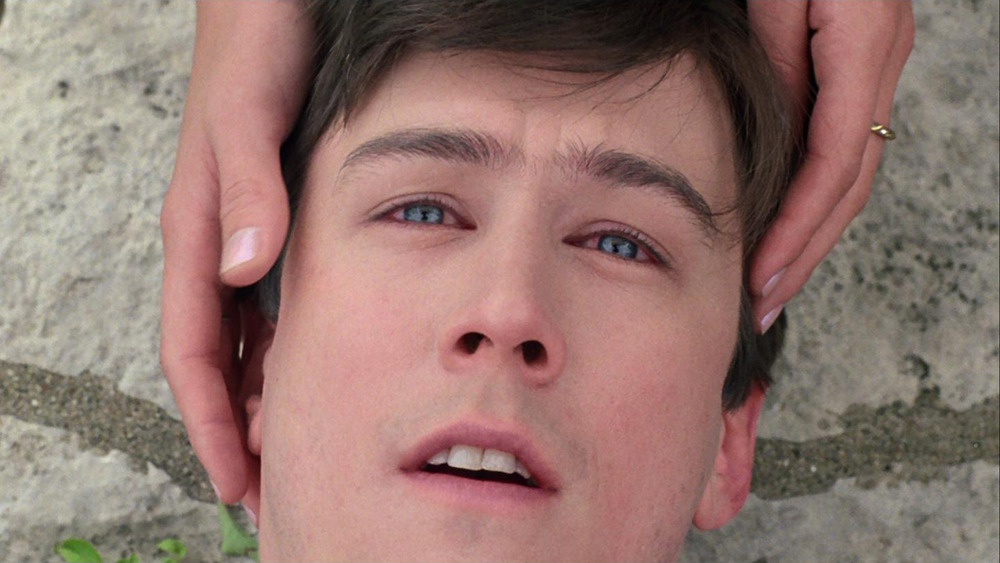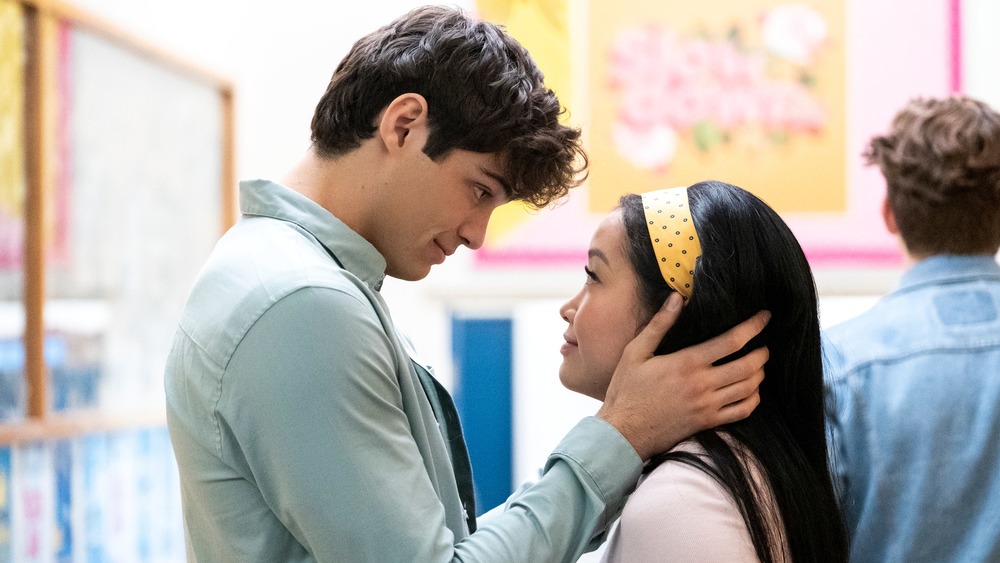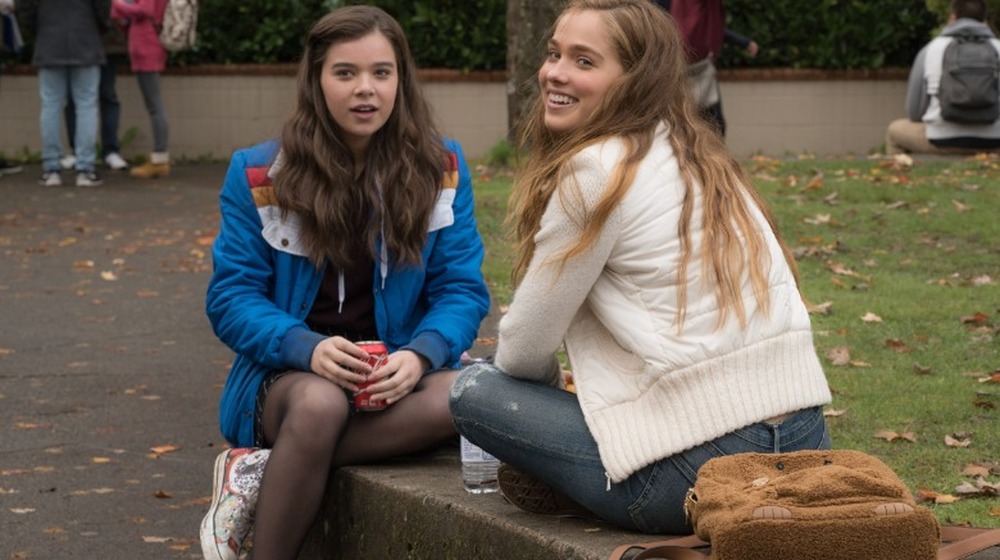Things Only Adults Notice In These Coming Of Age Movies
Coming of age stories serve a couple of different but complementary functions. For teenagers, they're a reflection of how they feel right now. The best coming of age stories speak to universal teenage concerns about growing up, making friends, falling in and out of love, and learning how to be a fully functional human being.
Even as coming of age stories serve that function for teenagers, they also provide adults with a reminder of what it was like to be young. Every great teen movie has a couple of iconic adult characters that are either sympathetic to the young protagonist or get in their way. Whatever the case may be, though, adults can get plenty out of watching coming of age stories, including some things that teenagers might miss. These could be subtle plot points or even pieces of characterization that teenagers are likely to ignore. The best coming of age stories aren't just about teenagers, but sometimes the teenagers who watch them can get too focused on that element. Adults, meanwhile, may notice things that teen watchers missed.
Lady Bird: Everyone's depressed
The first time your average teenager watches Lady Bird, they're likely to focus largely on the story of Christine "Lady Bird" Macpherson and her struggles to relate to her mother and fit in at school. Teenagers are likely to relate to her story, even as she begins to realize what it means to be comfortable with yourself, your family, and the friends that you love.
Adults watching Lady Bird, on the other hand, are much more likely to notice the depression that seems to afflict several of the characters surrounding the main character. There are several references to her father's medication usage, suggesting that he has a history of depression that he's now treating. Those references are the most obvious, but they're coupled with Stephen McKinley Henderson's Father Leviatch, who is seen crying quietly at one point during the film. Lady Bird's mother may not be clinically depressed, but she struggles with her husband's mental illness and with juggling their somewhat dire financial situation. All around Lady Bird are adults who she's largely oblivious to, not because she's malicious but because she's still young and doesn't have a full sense of the world as it is yet.
Booksmart: privilege on display
On its surface, Booksmart is akin to a movie like Superbad. It's a movie about two teenage girls who have one wild night together as they prepare to separate and head off to college. It's a great movie for jokes, and it's a perfect showcase for Beanie Feldstein and Kaitlyn Deaver, its young stars. The movie's central premise, which sees their characters discover that everyone else in their high school is just as successful as they are, even though they all partied and failed to study, is what sparks their decision to have one wild high school night together.
One of the things the movie hints at, though, is that Feldstein's Molly comes from a different class than most of her peers. While some of her classmates may be going straight to Google or to Ivy League schools, that doesn't just mean that they're smart — it also means that they've had some help to make those dreams a reality. Molly, meanwhile, lives in a small apartment, which may suggest that she had to work harder than everyone else in order to achieve the same dream.
The Breakfast Club: sexual harassment
The Breakfast Club is a definitive teen movie. Its premise of five high schoolers from different social cliques who get trapped in Saturday detention together has helped to define what a coming of age story is. The film was released in 1985, and while much of it remains as resonant today as it was then, there are aspects of the movie that may have been overlooked by younger audiences both when it was released and today.
One of the biggest issues adults might have comes with the relationship between Bender and Claire. In the film, Bender spends an extended period of time harassing and demeaning Claire. Although the idea is for this kind of behavior to be charming, many adults today would rightly point out that it sets up an unhealthy standard for relationships between young men and women. Bender gets the girl at the end of the movie, but many adults may ultimately think that he doesn't really deserve her.
Say Anything...: boombox creepiness
Today, most people know what kinds of behaviors to look for in a stalker. In 1989, that wasn't the case, especially not for most teenagers. That's why, when they were watching Say Anything..., they might have been confused about exactly how romantic Lloyd's iconic boombox move really is. In the movie, Lloyd decides to stand outside his ex-girlfriend Diane's window blasting "In Your Eyes" by Peter Gabriel. The song has special significance for Lloyd because it's the song they were listening to when they had sex for the first time.
Although this move was seen as the height of romance for years, adults may have noted just how creepy the moment really is. Diane has broken up with Lloyd, and while he may believe that she still loves him, that doesn't give him an excuse to harass her. Lloyd is an optimistic guy, but he has to learn how to respect Diane's boundaries if he wants the relationship between them to last.
Mean Girls: Does Regina deserve this?
In its DNA, Mean Girls is a movie about taking on the popular girl in school. Regina George is the height of cool, and she can be cruel to those both inside and outside her inner circle. Because of her years of cruelty, Cady plots with her new friends Janice and Damian to find ways to take Regina down a peg. For Janice, the goal is revenge, and for Cady, it's the chance to steal Regina's man.
Although the plan sounds simple enough, it turns out to be anything but. Cady and Janice take things way too far, essentially ruining Regina's life in the process. Regina is a cruel, mean person who needs to learn a lesson in humility, but Cady and Janice are a little too determined to prove that she isn't as perfect as she seems to be. Adults may notice the extreme lengths that these teens go to before younger viewers catch on, in part because the teens watching are much more willing to just be along for the ride.
Clueless: stepsibling romance
Clueless, which is adapted from Jane Austen's Emma, is a film that ends with Cher falling for Josh, her former stepbrother. For teenagers, this ending read as a fairly gross resolution. After all, Josh and Cher share a father figure, and they have spent a lot of time growing up in the same house. For the adults watching Clueless, though, the relationship between Cher and Josh may have raised fewer red flags.
After all, Cher and Josh aren't blood relatives, and they don't even share the same father anymore. There's a little bit of an age difference between them, but many adults may rightly recognize that love is a complicated thing. Cher's evolution over the course of Clueless shows us that she isn't as shallow and vapid as she initially appears to be, and Josh obviously finds that appealing. If they can be their best selves together and find a little sliver of happiness in this world, no adult is going to deny them that chance.
Spider-Man: Into the Spider-Verse: Peter B. Parker's hope
Spider-Man: Into the Spider-Verse isn't a conventional coming of age story, but that's what makes it so great. Combining the spider-heroes from many different universes, the film is mostly about the relationship between Miles Morales and Peter B. Parker, a depressed former Spider-Man who no longer understands why he ever fought for justice in the first place.
While the story of Miles, who learns how to believe in himself and in his abilities, may have resonated with teens, the story of Peter B. Parker may have resonated with the adults watching the movie. Peter ends up back in his own timeline, and it seems like he honestly wants to try again by the end of the film. It took his journey into Miles' universe, and his relationship with Miles, to make him realize what he was fighting for. Every adult can relate to a listless, 30-something guy who is past his prime and is dealing with an existential crisis. In Into the Spider-Verse, Peter B. Parker fills that role, and every adult watching the movie definitely identified with his journey.
Love, Simon: Where's the love?
When it hit theaters in 2018, Love, Simon was heralded by some as an overdue, quietly revolutionary picture. It was the first teen studio comedy with a gay lead, and the movie's marketing campaign wasn't exactly embarrassed about that fact. The movie certainly represented long-overdue progress, and its story of a young man coming to publicly accept his sexuality as he falls in love was more than enough to win over the movie's core audience of teens.
For any adults who watched the movie, though, that message of progress may have felt a little hollow, in part because of how little of the movie's screen time is dedicated to the romance itself. Instead, the movie is consumed with whether Simon will be outed against his will because of the secret letters he's been trading with an unknown gay classmate. The movie's heist elements somewhat undercut its underlying messages about progress, and they also show how uncomfortable major studios still seem to be about depicting gay romance on-screen. Love, Simon may be a love story, but it doesn't have much time for the gay couple at its center.
Superbad: Who needs girls?
Superbad is, in its own strange way, a movie about a quest. Seth and Evan, the friends at the movie's center, want to make it to a party with enough alcohol to win the affections of some girls and maybe have sex as well. That quest certainly leads to plenty of hilarious moments over the course of the film, but it's not really what the movie's about. While teenagers might understandably get distracted by the jokes scattered throughout the film, the adults watching it likely understood the movie's deeper ideas about friendship.
Although the girls who Seth and Evan are after may seem like the movie's destination, the emotional journey is really about the bond between the two of them. They're seniors preparing to head off to different colleges, and the movie is about the anxiety that many teenagers have when they're on the verge of starting a whole new chapter in their lives. The wild night that they have together only deepens their friendship, even as it makes them realize how impermanent it ultimately is.
Ferris Bueller's Day Off: Cameron is depressed
On its surface, Ferris Bueller's Day Off is about Ferris, a plucky high school student who plays hookie for the day in order to have some fun in Chicago. The movie paints Ferris as a heroic figure, even as various forces try to prove that he's not sick in bed, as he claims to be. Ferris' escapades are undoubtedly entertaining, but they also mask the struggles of Ferris' best friend Cameron, who undergoes a fairly radical change over the course of the film.
When the movie starts, Cameron is completely reluctant to join Ferris on his wild day off. While that reluctance may seem like it's all about the rules, adult viewers may eventually realize that Cameron is actually depressed. While Ferris is having a good time, the real purpose of the day seems to be to prove to Cameron that his life is worth living. He takes his day off to help his friend, and Cameron ultimately realizes the value that comes with every new day. The movie is so much about Cameron that some older viewers have even theorized that Ferris is a figment of his imagination. Whatever the case may be, Ferris Bueller's Day Off is much more about Cameron than it is about Ferris.
To All the Boys I've Loved Before: Peter always loved Lara Jean
It's not every day that you get a new teen classic, which is one of the reasons that To All the Boys I've Loved Before was such a pleasant surprise. The movie tells the story of Lara Jean and Peter, two teens who start out pretending to date before ultimately realizing that they have genuine feelings for one another. Teenagers fell head over heels for Noah Centineo and the swoon-worthy dynamic between Peter and Lara Jean that develops over the course of the movie.
Adults may have noticed, though, that Peter isn't really changing over the course of the movie. Even at the beginning of the movie, when he deals with a breakup, it's clear that Peter has real feelings for Lara Jean. Those feelings only deepen over the course of the movie, but they're there in the very first interaction between the two of them. Lara Jean may have realized that she loved Peter, but Peter knew all along how he felt.
The Edge of Seventeen: Nadine is being selfish
Young people are always going to identify with young protagonists. That's just the way the movie world works. Most teen movies are about teen characters that are worth identifying with, but some have harsher truths about what it's like to be young. In The Edge of Seventeen, another teen comedy classic of recent years, young Nadine goes into a tailspin after she discovers that her best friend is dating her older brother.
Throughout the movie, Nadine is told by everyone around her that her anger over this is selfish and that both her best friend and her brother deserve their happiness. Although young viewers may be inclined to sympathize with Nadine, older ones likely realized that Nadine is being selfish. It may be uncomfortable for her best friend and brother to date, but she has to realize that they aren't doing it to ruin her life. Nadine is not the only person who has feelings that matter, and over the course of The Edge of Seventeen, she learns that harsh reality.
